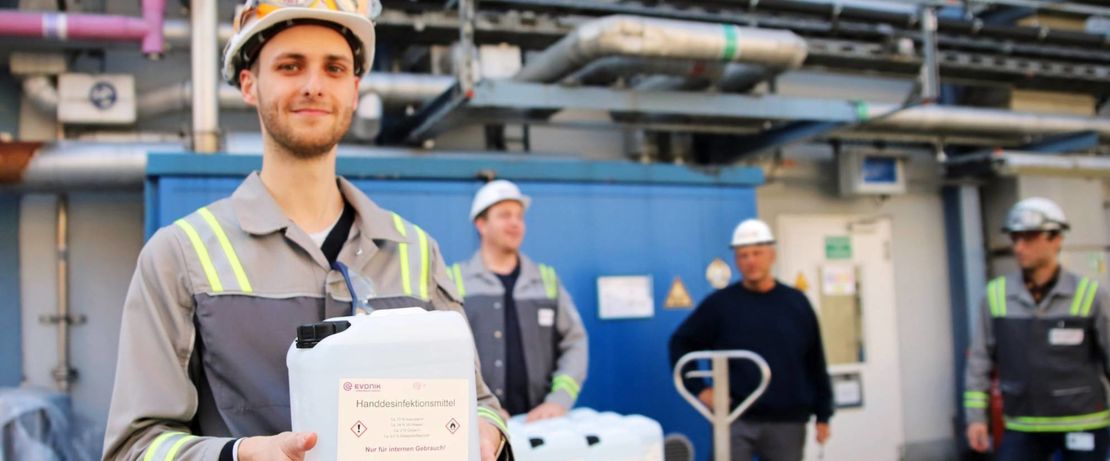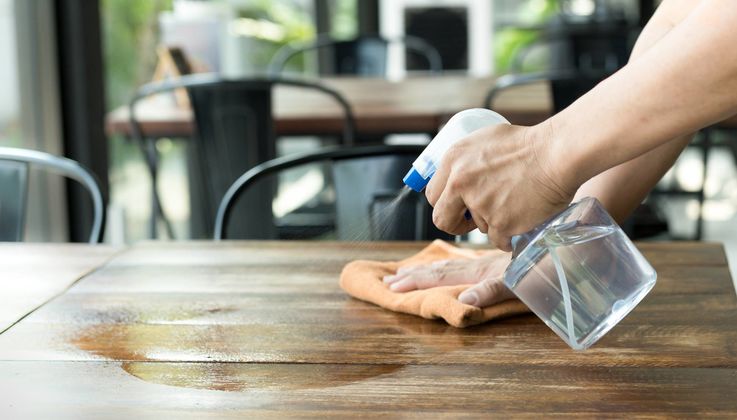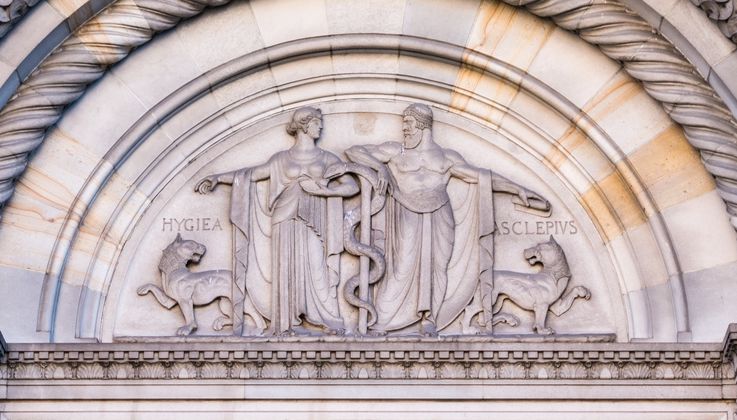
The history of disinfection
New responses to new challenges
In December 2019, Chinese authorities notified the World Health Organization that a striking number of patients were presenting with pneumonia in the city of Wuhan. What began as a local outbreak fairly quickly became a pandemic: just a few weeks later, the SARS-CoV-2 coronavirus and the COVID-19 respiratory disease it causes had taken the world hostage.
By late January 2020, the World Health Organization had declared the increasing spread of SARS-CoV-2 to be an international health emergency. Researchers from all over the globe began searching for vaccines and medications that could put the brakes on COVID-19. Governments issued travel bans and social distancing measures to curtail the spread of the virus. Procuring urgently needed protective equipment – from face masks to disinfectants – became an important job of the state. Many industrial enterprises adjusted to the new situation in a very short period of time, adapting their processes to protect their own workers and, in some cases, retooling production lines to manufacture urgently needed supplies.
Together against COVID-19
A number of industry associations have also helped coordinate relief efforts. The German Chemical Industry Association (VCI), for example, provided an internet platform for organizing the national supply of hand sanitizer, which had become a rare commodity.
As a specialty chemicals company, Evonik participated in the platform but also went beyond that. Hydrogen peroxide, peracetic acid, and REWOCID® WK 30, the company’s brand of amphoteric surfactant, are important actives for disinfectants. Evonik has repeatedly donated large quantities of these. For the first time in many years, the company also resumed production of alcohol-based disinfectants. These were initially intended for in-house use, but before long the company was also supplying hospitals, medical clinics, and other institutions located near many of its sites.
In addition, Evonik is also providing its network of partners with free supplies of polyamide 12 powder for 3D printing. These partner companies use the material to print medical devices, such as face masks or ventilators, that hospitals can use in the fight against COVID-19.
When it came to manage the crisis in China, Evonik supported its local partners by providing polyurethane additives at no charge for use in manufacturing mattresses for Wuhan hospitals.
Key products in the fight against the pandemic
The company’s products are helping in a number of other areas too: pharmaceutical companies use its precious metal powder catalysts, for instance, to manufacture active agents now undergoing clinical trials as treatments for COVID-19. The company’s liposomal drug delivery systems can be used for formulating vaccines in ways that make them especially effective.
The Essen-based specialty chemicals company also produces a number of now crucial intermediates, such as lauryl chloride, a key starting material for water-based disinfectants and high-performance plastics for medical devices. AEROSIL® R 816 is a specialty silica that, combined with carbomer, delivers the proper viscosity for alcohol-based disinfectants. Other silicas are important components in the silicone tubing used for ventilators. And Evonik also makes tert-butanol, a material used for denaturing the ethanol in disinfectants.
As of May of 2021 the pandemic is not yet over. Our common fight against the virus goes on.



